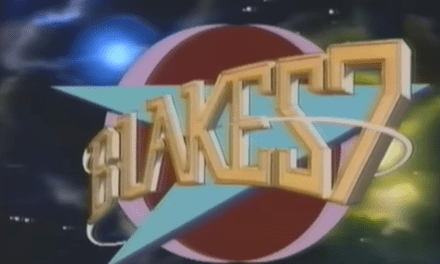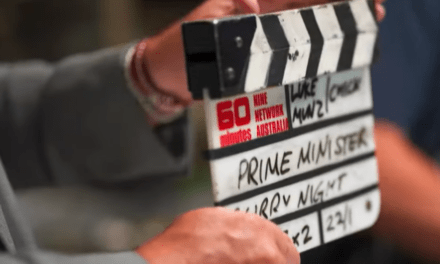Our extraordinary conjuncture mixes pandemic panic with racial activism. Inter alia, it has produced many changes in the way we watch television. One of these concerns the English Premier League, which for the first time in its thirty-year history has been seen live on British broadcast TV.
We have also witnessed the unraveling of rules governing political speech in the game. “Black Lives Matter” has transcended politics. It appears on team shirts, something that would be forbidden if the authorities deemed it political. Instead, the expression has become like support for Legacy—a matter of human rights and honor, and hence accepted (unlike footballers declining a poppy that commemorates the British military, who risk physical and verbal assault by English men, or wearing a ribbon in support of independence for Catalunya, which produces censure). Those are deemed political acts.
About a third of players in the Premier League identify as black. Most are British citizens. Yet there are no black managers, chief executives, or referees in the League, and just a handful of the 91 full-time pro clubs in the UK hire black managers. Instead, teams select from a seemingly unending parthenogenetic production line of white men.
All of us piling in on this subject have rightly considered the exclusion of black Britons from positions of power to be an element of despicable, violent colonial history and of present-day institutional racism.
One aspect that has largely gone unnoticed is: who owns the Premier League’s twenty teams? After all, they appoint the executives of both their own teams and the very competition itself.
The answer is that very few clubs are the property of British citizens. Aston Villa is part-owned by the fourth-richest African in the world; Leicester City by Thai clientelists; Wolverhampton Wanderers by a Chinese multinational; Manchester City by an Emirati; and Sheffield United by a Saudi. Arsenal, Villa, Bournemouth, Liverpool, Crystal Palace, and Manchester United are under full or partial US control. Southampton is 80% Chinese-owned and 20% Austrian (the latter the only female owner); Everton is 77% Iranian; Watford is run by an Italian; and Russian oligarchs are majority or full proprietors of Chelsea and Bournemouth.
Their wealth, and that of the small minority of British owners, derives from a wide array of sources: pornography; state-owned/dubiously-privatized energy firms; publishing; daddies and daddies-in-law; equity conglomerates/raiders; shopping malls; construction; gambling addiction; video games; theater; duty-free stores; US sports teams; corporatized food; health care; sporting apparel and equipment; forex trading; (putative) match-fixing; and manufacturing.
Retired star player Eni Aluko rightly calls for changes to football’s board rooms, dugouts, and referee appointments. She seeks ‘a level of representation that is not embarrassing, that reflects the diversity on the pitch and the communities we serve across British society.’
I wonder whether these owners see themselves serving British society; or any society.
Which returns me to television.
One of the few British subjects who owns a Premier League club outright is Newcastle United’s Mike Ashley. He is also the proprietor of Sports Direct, a zero-hours contract mass-market retailer of sporting goods, and a series of brands that his chain stores sell.
Newcastle has a record of poor achievement across the last fifty years, and Ashley has not made major investments on a regular basis during his decade and a half of proprietorship. So fans were delighted recently when a takeover with Saudi money was in the offing; it would be a means of buying glamorous players who might deliver real success.
They blithely disregarded the appalling human-rights record of that dastardly regime, just as other clubs’ supporters have not cared about the political economy and violence underpinning Thai, Chinese, Russian, or Emirati investments.
But then the real ‘heart’ of the Premier League became relevant—TV.
Television rights sales are crucial elements of its monetary power.
And such deals have seen Qatar’s مجموعة بي إن الإعلامية (beIN) sports network win a vast array of contracts to show football competitions, including the Premier League, in many parts of the world. beIN is a creature of Al Jazeera, the renowned news channel.
Qatar is in a struggle with Saudi Arabia over many things. The cultural element includes the Saudis allegedly backing a pirate service that liberates the service provided by beIN and sells it to subscribers. beoutQ is notorious, and not just for its childish troping title. Hence Al Jazeera and the Qataris lobbying the Premier League, the World Trade Organization, and others to pay heed to this ‘piracy’ and hence discredit then block the Newcastle purchase.
The Premier League could care less about human rights. That is evident from the appalling regimes represented among its ownership—not only representatives and beneficiaries of the avowed anti-democracies listed above, but standard-bearers of brutal superpowers such as Russia and the US.
Amnesty International has repeatedly explained, to all those with eyes to read and ears to listen, that the House of Saud uses sports to better its deserved authoritarian image. The proposed Newcastle story is a key instance. Torture, show trials, anti-democratic norms, zero human rights, murder—none of this appears to matter to a ‘big club’ in search of money.
https://twitter.com/mercan_resifi/status/1260580068235108357
Newcastle ‘fans’ and Premier League ‘executives’ are just like Downing Street and the White House: whose greedy insouciance has dominated decades of UK and US foreign policy, driven again and again by a lust for Saudi oil reserves and investment in return for promises to restrain anti-Saudi forces, be they domestic or foreign.
When the Qataris won a decision by the World Trade Organization that tied the pirate network to the Saudis, this was what truly worried the Premier League in terms of a takeover of Newcastle United—that precious TV rights might be compromised.
That’s football. That’s the Premier League.
Whether the League permits the takeover or not, its prime movers will remain international capitalist hegemons. Their human-rights records are either non-existent or maleficent.
The entire top of the sport is rotten, both in terms of its exclusion of black British talent and its forms of control.
Professional football is in desperate need of democratic regulation covering a raft of human-rights issues. They derive both from UK history and contemporaneity, and the kinds of people whose money the Premier League so cravenly craves.
Imagining that the clowns atop the British state will comprehend or endorse such reform is as utopian as expecting ‘fans’ of ‘big clubs’ to show a skerrick of concern for human rights; or television to interrogate the sports it cultivates.
Thanks to my colleague Tobias Steiner for invaluable additions.
Toby Miller is Stuart Hall Professor of Cultural Studies, Universidad Autónoma Metropolitana—Cuajimalpa, and Research Professor of the Graduate Division, University of California, Riverside. Toby can be contacted at tobym69@icloud.com and his adventures scrutinized at www.tobymiller.org.





